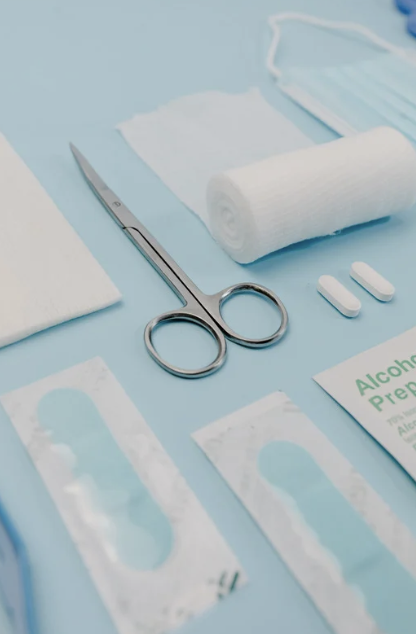Have you ever wondered who the unsung heroes of the healthcare system are? Let's shine a light on them. Certified Nursing Assistants, or CNAs, are the backbone of patient care. Their global market valuation is set to soar to 17 billion by 2028, with a growth rate of 23.7%. But who are these CNAs, and what do they do? Let's find out.
Who is a CNA?
Certified Nursing Assistants are responsible for catering to the basic care of patients under the supervision of licensed nurses or health care professionals. Their job involves a lot of responsibilities, and they are as follows:
Maintaining a compassionate environment that improves overall healthcare outcomes.
Monitoring daily activities of patients and their vital signs.
Extending emotional support to patients to navigate their healthcare challenges.
Ensuring safety procedures and protocols are carried out efficiently.
Adhering to professional ethics and patient privacy rules.
Keeping medical equipment and supplies clean.
Where do Certified Nurses Assistants (CNAs) Work?
With their versatile skills, Certified Nursing Assistants are indispensable in a diverse array of professional settings, which includes the following.
Clinics
Hospitals
Assisted living facilities
Long-term residential facilities
Hospice
Nursing home
Rehabilitation facilities
Private practices
Home healthcare
Adult day-care centers
Mental health facilities
What Qualifications Are Required for a Nurse Aide?
The career of a Certified Nursing Assistant is full of promise, and the best part is the flexibility it offers-it doesn’t require a degree, just a certification, giving individuals the power to shape their career path.
Get a high school diploma or GED ( General Educational Development)
Complete a Nursing Assistant program
Pass the certification exam
Qualities needed to become a CNA:
Besides qualifications, some qualities can make a Certified Nursing Assistant very successful. They are as follows.
Strong communication skill
Empathy and understanding
Attention to detail
Physical endurance
Ability to work in a team
Time management
Growth Opportunities for CNAs:
When you decide to advance your career as a certified nursing professional, you're not just expanding your career prospects-you're also increasing your earning potential. And the best part? There's a wide array of growth opportunities for Certified Nursing Assistants, some of which we'll guide you through below.
Get certified in the following areas of work:
Certified American Medicine Technologists - This certification, offered by reputable institutions, helps them to become certified medication aides or medical administrative technicians.
Certified Cardiographic Technician - This certification will provide them with the technical know-how, knowledge, and ability to work as ECG technicians, rhythm analysts, and telemetry monitor technicians and run additional tests and diagnostics on cardiac patients.
Certified Medication Aide - This certification helps them earn the ability to dispense specific medication.
Certified Medical Assistant - Transitioning from a certified nursing assistant to a medical assistant job is made easier through certification, providing CNAs with the reassurance that they can perform administrative and clinical jobs in their new role.
Emergency Room Technician - With advanced certification as emergency medical technicians (EMT), CNAs become viable candidates to work in the emergency room, opening up new and exciting career opportunities.
Apart from getting certified in specialized areas, the average certified nursing assistant can become a specialized CNA, Registered Nurse (RN), Licensed Practical Nurse (LPN), Provide services for home aide health, or switch to management roles.
Statistics about CNA Jobs in the USA
It is always difficult to find figures related to CNAs in the sea of stats and demographics related to nurses in the USA. For instance, the workforce of registered nurses is more than 4.7 million, which is significantly larger than the CNA workforce. This is precisely why Data USA brings to our notice the following facts about average CNA demographics.
The workforce of Certified Nursing Assistants is more than 1.36M
The average age of female Certified Nursing Assistants is 39.1
The average age of male Certified Nursing Assistants is 37.6
The estimated job growth rate in the coming 10 years is 4.15%
The average salary of Certified Nursing Assistants is $30,840
The average salary of male Nursing Assistants is $35,844
The average salary of a female Nursing Assistant is $30,201
The Yin and Yang of the Certified Nursing Assistant:
Pros of being a Nursing Assistant:
Limited training period: it only takes four to twelve training periods to become a Nursing Assistant.
In recent years, the growth in Nursing Assistant job roles has increased by 17%, and it is expected to grow even further.
Certified Nursing Assistants' job keeps them on the go at all times. Therefore, for any individual to love being on their feet, it is the right job fit for them.
A CNA's job revolves around assisting people, which many CNAs cherish, and they look forward to going to work every day to foster professionals and personal bonds with patients.
Their work environment is climate-controlled, very clean, and always occupied by very educated professionals.
It is easy to complete a training program as most training programs only require a high school diploma.
Exposure to the latest and modern technologies and working with them on a regular basis.
Considering the fact that healthcare and social assistance networks account for one-third of the nation’s job growth, it is one of the easiest ways to get into the medical profession.
Through this job experience, CNAs gain the most important life skills, for example, learning to lift people and other heavier weights without harming themselves.
Cons of being a Certified Nursing Assistant
Certified Nursing Assistants earn competitive pay, but sometimes, it doesn’t reflect the burdensome nature of their job.
Sometimes, the job of CNA becomes emotionally demanding as it requires them to witness patients’ declining health.
CNAs' jobs involve shift work, and they have to present round the clock and even on weekends.
In What Ways is a Certified Nursing Assistant’s Job Different from that of a Medical Assistant?
Please go through the table below to understand the nuances of the certified nursing assistant job role and how it is different from other healthcare roles.
| Area of Work | Certified Nursing Assistant | Registered Nurses | Medical Assistant |
|---|---|---|---|
| Focus | Take care of basic clinical staff and direct patient care. | Supervise CNAs, administration, and clinical support. | Administrative and clinical support in an outpatient setting. |
| Responsibilities | Feeding, dressing, bathing patients, monitoring their vital signs, and reporting changes in the patient’s condition to nurses. | Providing patient education, coordinating care with other healthcare professionals, developing care plans, and administering medication. | Administering injections, preparing patients for tests, drawing blood samples, scheduling appointments, maintaining medical records, and billing. |
| Work Settings | Assisted living facilities, home healthcare, hospitals, and nursing homes. | Hospitals, clinics, private practice, and nursing homes. | Outpatient clinics, doctors' offices, hospitals, etc. |
| Training | State-approved training program and passing a certification exam. | ADN (Associate Degree in Nursing) or BSN (Bachelor of Science in Nursing). | Completion of a post-secondary program. Certification is optional but beneficial. |
Conclusion:
In summary, the average CNA plays a unique and vital role in the healthcare system. Their contribution is instrumental in helping the entire facility achieve the highest level of patient care. They are present in multiple types of healthcare facilities, showcasing their adaptability and dedication. Their work ranges from taking care of basic clinical staff to direct patient care. We hope this article has shed light on the invaluable role of Certified Nursing Assistants.
Author Bio: Alexandra Whitt works as a brand specialist at MedicoReach. She has been working in the b2b industry for the past five years. She empowers the marketers by sharing valuable information across different verticals such as healthcare, technology, marketing etc.


































































































